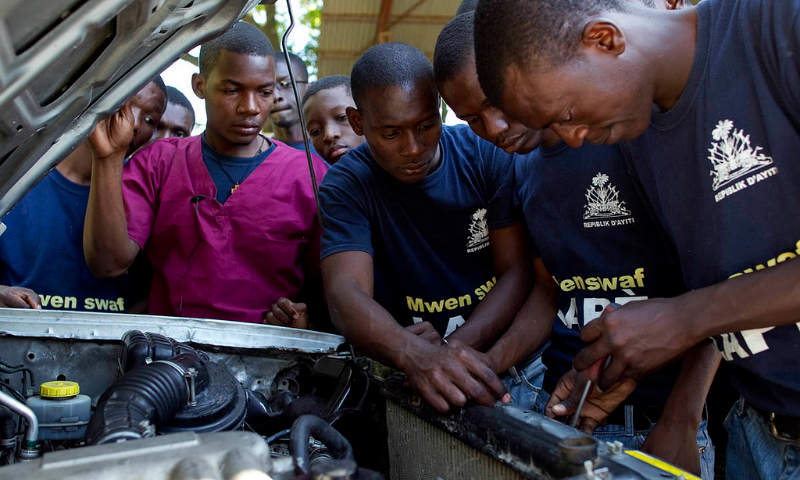
Higher skill levels provide greater opportunities for young people resulting in spillover effects on earning potential and poverty eradication. It can also ensure transition to full and productive employment and decent work for all women and men, including youth and people with disabilities. To raise awareness about the importance of youth skills development, the United Nations observed World Youth Skills Day on July 15 on the theme of “Skills Development to Improve Youth Employment.”
Just as different skills are required to meet the differing demands of a changing labour market, different skills programmes are also required to meet the needs of a diversity of youth. Many young people, including those with disabilities, often face greater challenges in accessing decent work, and in turn are more likely to experience poverty and income inequality, further impacting their ability to be active and engaged citizens. Ensuring skills development programmes that target the specific abilities of young people with disabilities is key to their empowerment. Young people with disabilities must be equipped to find and sustain decent work to ensure they are not left behind. For all young people, both those with and without disabilities, it is essential that skills development programmes are linked to practical experience and work placements, so that they can transition into the labour market and effectively utilise the skills they have received.
Coinciding with day, the UN DESA Division for Social Policy and Development (DSPD) launched the World Youth Report on Youth Civic Engagement, which looks closely at the challenges and opportunities for young people’s engagement in economic, political and community life. The Report is intended as a tool for young people and policy makers to engage in dialogue on how best to bolster youth participation, whether it be through workplace internships , through sport for development at the community level, or through online engagement in the political sphere.
The Report reminds us ‘skills development’ is a broad term– skills are developed and grown in many spheres of life and society, not just in the economic. For example, through sport, young people can learn leadership and teamwork skills; through volunteerism, they can learn collaboration and empathy; through online engagement they can develop skills to equip them for political life.
When thinking of skills development, we must look beyond job specific skills programming, and work to develop skills in a wide variety of settings, both formally and informally. This not only ensures that young people are central to youth development, but it allows young people to develop the skills needed to be leaders in sustainable development at all levels.
Learn more about our work on youth at social.un.org/youth
Source & Copyright: UNDESA DSPD
 Welcome to the United Nations
Welcome to the United Nations